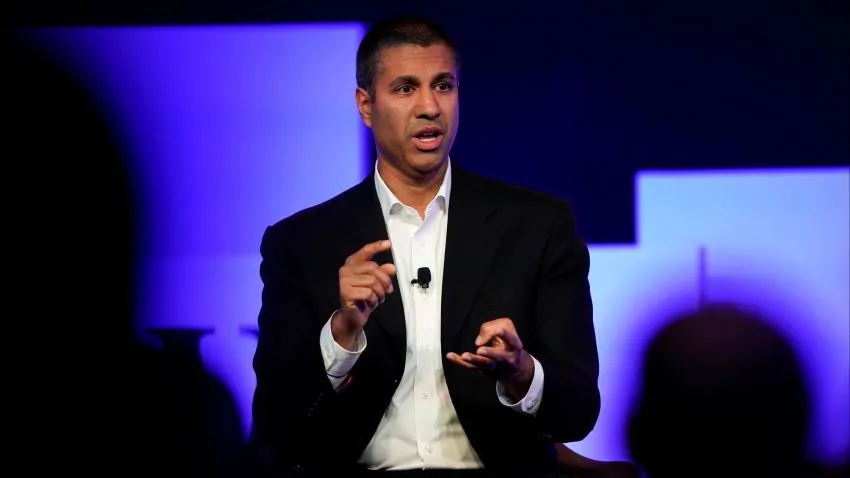
The U.S. must source 5G wireless network equipment from trusted vendors, and Huawei Technologies is not one of them, Federal Communications Commission Chairman Ajit Pai said Tuesday.
Equipment at the heart of these networks "currently comes from just a few global suppliers," Pai said at an event hosted by the Council on Foreign Relations here. "And the largest right now is the Chinese company called Huawei. And this is a major concern."
"For our part, when it comes to 5G and America's security, we cannot afford to take a risk and hope for the best," he said. "The stakes are simply too high."
Pai laid out reasons to consider Huawei a security threat. The company positions itself as private but has "significant ties" to the Communist Party and the Chinese military, and Beijing could make it secretly "spy on foreign individuals and businesses," he said.
The FCC chief also listed recent examples of the Chinese government putting pressure on businesses: the response after a U.S. basketball team manager tweeted in support of the Hong Kong protesters, Tencent Holdings-backed Blizzard Entertainment's suspension of a professional gamer for his own support of the demonstrators, and Apple's removal of a Taiwanese-flag emoji for the iPhone in Hong Kong and Macau.
The basketball backlash was especially fierce in both the U.S. and China. Houston Rockets general manager Daryl Morey's tweet early last month sparked a boycott in mainland China, with state television and Tencent canceling game broadcasts and livestreaming. Apologies by Morey and the National Basketball Association drew a harsh bipartisan rebuke from lawmakers back in the U.S.
Earlier this year, he said, the Justice Department charged Huawei officials with fraud and theft of trade secrets -- and an independent report found Huawei equipment had at least one potential backdoor.
"The Chinese government subsidizes Huawei, enabling it to undercut its competitors on price, even if the quality is lacking," Pai said. "Whether this violates World Trade Organization rules and other laws I will leave to the trade lawyers, but this practice demonstrates China's strategic determination: to choose Huawei as a national champion, to make it a key component in its Belt and Road Initiative, and to crush foreign competitors by any means necessary."
Pai called on U.S. wireless carriers and entities to avoid equipment from risky suppliers. In two weeks, the FCC will vote on prohibiting organizations from receiving the agency's annual $8.5 billion Universal Service Fund to purchase equipment or services from companies like Huawei.
In November, the FCC will also vote on removing and replacing Chinese equipment from rural wireless carriers, which currently have Huawei or ZTE equipment in their networks.
Measures to curb Chinese telecom providers in the U.S. are not new to FCC under Pai. In May, the agency voted to ban China Mobile from providing service in the U.S. over national security concerns and said it was reviewing the status of other Chinese companies.




















